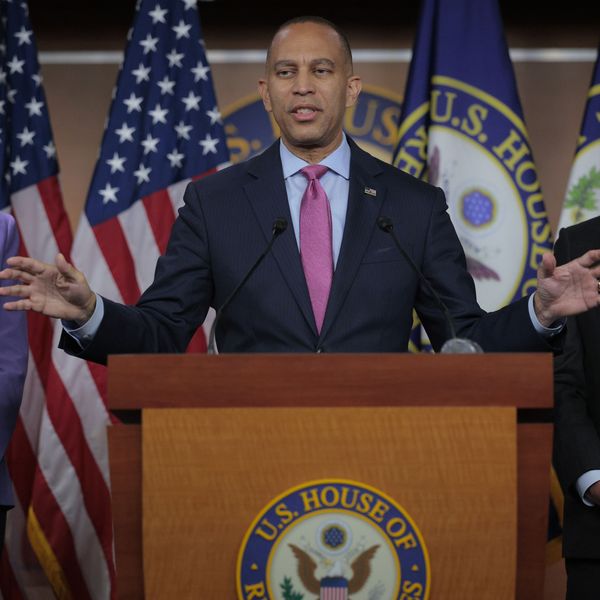UNITED NATIONS - Afghanistan, once described as the graveyard of empires, is ranked number one as the country with the most "significant rise" in civilian deaths last year, turning it into a veritable killing field, according to a new report by the London-based Minority Rights Group International (MRG).
The annual report, titled "Peoples Under Threat", says civilian killings in Afghanistan have increased every year in the last five years.
"And the continued weakness of the central government, internal disunity and systemic corruption contribute to the poor prognosis," the report notes.
According to the study released Thursday, this year's figure is expected to exceed the 3,000 civilians killed in 2010.
Mark Lattimer, MRG's executive director, told IPS the Taliban or other anti-government forces were responsible for 75 percent of these killings.
He said 440 civilian killings were ascribed to pro-government forces, according to the U.N. Assistance Mission in Afghanistan, including and U.S. and North Atlantic Treaty Organisation (NATO) forces who are supportive of the government of President Hamid Karzai.
And over 170 of these civilians were killed in aerial attacks, he added.
Briefing the Security Council Tuesday, U.N. Under-Secretary-General for Humanitarian Affairs Valerie Amos offered a higher figure for both civilian deaths and injuries. She said 7,000 civilians were killed and injured in Afghanistan last year, an increase of 19 percent over 2009.
Anti-government elements were reportedly responsible for over 5,000 of those deaths and injuries. Military operations by pro-government forces accounted for some 800 civilian casualties.
Improvised explosive devices and suicide attacks in civilian areas continue to cause large numbers of civilian deaths and injuries.
The Taliban's declaration last week of the start of a spring offensive "is of great concern", Amos told the Council.
The MRG study also singles out several other countries where civilian deaths have increased, including Cote d'Ivoire, Yemen, Kyrgyzstan and Libya.
Amos said she was appalled at the violence levelled against civilians in Bahrain, Yemen and more recently Syria, and at the loss of life and other human rights violations.
Other countries where civilians have borne the brunt of the attacks include Somalia, the Democratic Republic of Congo, Sudan, Colombia, the Central African Republic and Sri Lanka, where 40,000 civilians "may have died in the final stages of the conflict" in May 2009.
"Some of these violations may amount to war crimes and crimes against humanity," she said, pointing out that "international law requires that these allegations be properly investigated."
Asked how many of these civilians killings are under the scrutiny of the International Criminal Court (ICC), Lattimer of MRG noted that ICC Prosecutor Luis Moreno-Ocampo has opened an investigation into crimes committed in Libya, following referral of the situation by the Security Council in February.
"This may well lead to senior members of the government facing trial in The Hague," he told IPS.
Moreno-Ocampo has also undertaken preliminary investigations into killings in Cote d'Ivoire and Afghanistan.
Although Afghanistan has ratified the ICC statute, Lattimer said, it continues to be U.S. policy to resist any jurisdiction of the ICC over U.S. forces.
"Increasingly, we are seeing the ICC involved in more and more situations, and the threat of international criminal prosecution hanging over a wider set of leaders," he said.
But he pointed out that the chances of actual prosecutions also depend heavily on political factors, including which countries decide to ratify the ICC statute, and also which countries the Security Council is prepared to refer to the Court.
Amos told delegates the deliberate targeting of civilians or other flagrant disregard for well-being in violation of international humanitarian law during hostilities results in hundreds killed, injured, maimed and traumatised every week.
"This initial failure to respect the law is almost always the precursor to further violence, suffering and trauma inflicted upon civilians, including massive displacement within and across borders," she added.
Since her last briefing to the Security Council six months ago, Amos said, "We have witnessed an unprecedented series of crises in parts of the Middle East and parts of North and sub-Saharan Africa."
In its report, MRG says the death of Al-Qaeda leader Osama bin Laden is unlikely to affect either the growth of local insurgencies or the ability of the Taliban to mount operations in Kabul and other major centres.
"And any further escalation of the conflict or major re-alignment of power in Kabul carries the risk of large-scale bloodshed in a country still split between the Pashtun-dominated south, heartland of the Taliban, and the largely Tajik-Uzbek strongholds of the former Northern Alliance," said Lattimer.
Meanwhile, Amos warned the Security Council that when it comes to protecting civilians in the conduct of hostilities, "The picture is stark and it will remain so in the absence of determined efforts by parties to conflict to comply with the law."
Clear and binding rules regulating the conduct of hostilities exist. It is the willingness of parties to conflict to respect and ensure respect for those rules including through the rigorous pursuit of accountability that is absent, she added.
Enhancing compliance with international law, particularly in the conduct of hostilities, is the first of the five core challenges identified in the last two reports of the U.N. secretary-general on the protection of civilians.
As those reports made clear, aside from the fundamental responsibility on the parties to conflict themselves, the Security Council too has a responsibility to promote compliance, she noted.
First, by using all available opportunities to condemn violations and to remind parties of, and demand compliance with, their obligations.
Second, by applying targeted sanctions against the leadership of parties that routinely violate their obligations to respect civilians.
And third, by promoting accountability, including by mandating commissions of inquiry to examine situations where concerns exist regarding serious violations, with a view to identifying the perpetrators and ensuring their prosecution at the national level, or referring the situation to the ICC.


